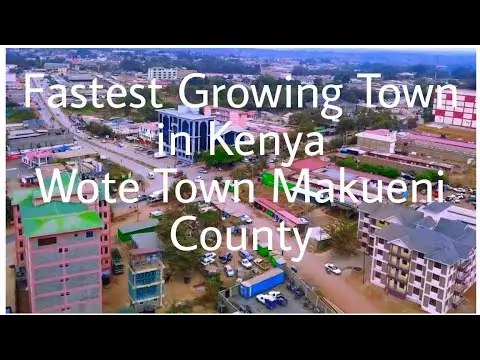Imagine a town that captures the essence of charm, beauty, and tranquility all in one place. Well, look no further because Wote Town is the epitome of a marvelous destination. Nestled amidst breathtaking landscapes and surrounded by a close-knit community, Wote Town is a hidden gem waiting to be discovered. With its rich history, vibrant culture, and an abundance of recreational activities, this town offers an experience like no other. So pack your bags, embrace the warmth of the locals, and let the enchantment of Wote Town whisk you away on a journey you won’t soon forget.
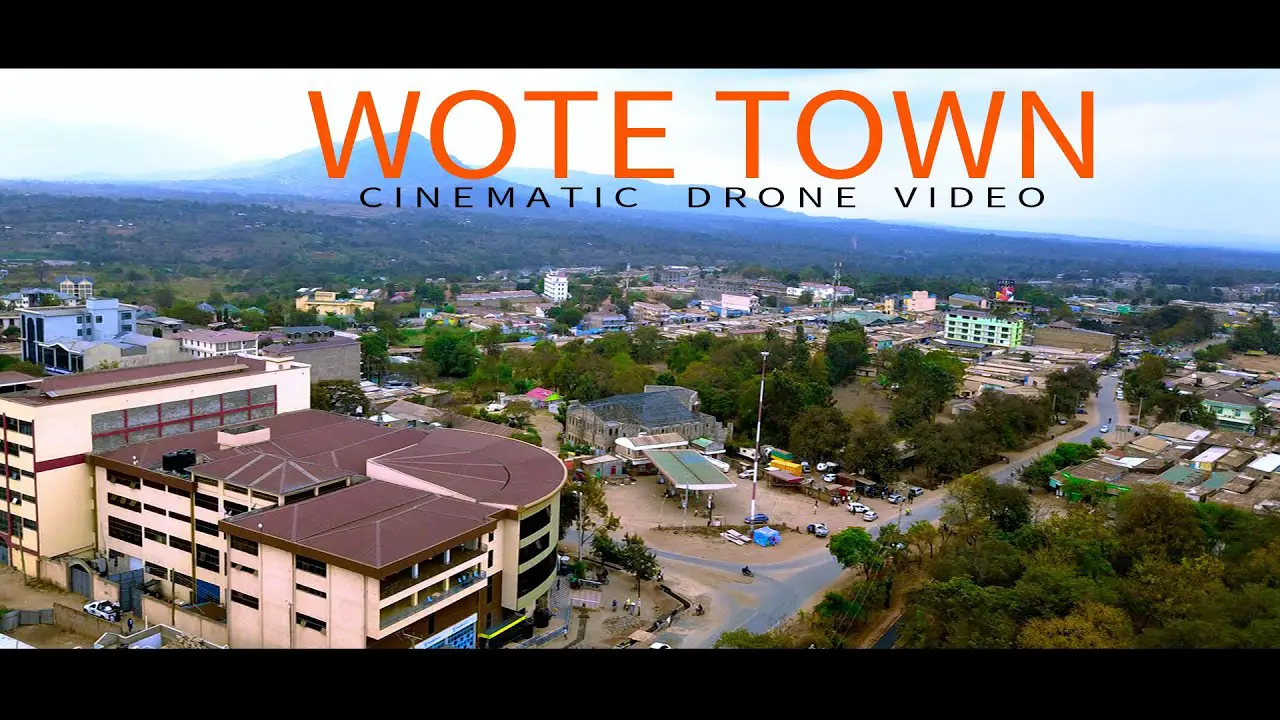
Geography
Location
Wote Town is located in the Makueni County of Kenya, in East Africa. It is situated in the southeastern part of the country, approximately 134 kilometers southeast of Nairobi, the capital city of Kenya. Nestled amidst beautiful landscapes, Wote Town is surrounded by hills and valleys, contributing to its serene and picturesque setting.
Climate
Wote Town experiences a pleasant and mild climate throughout the year. The town is situated at an elevation of approximately 1,600 meters above sea level, which contributes to its moderate temperatures. The average annual temperature in Wote ranges between 20°C (68°F) and 25°C (77°F). The region also receives a moderate amount of rainfall, with the wet season typically occurring between March and May and a shorter rainy season in October and November.
Natural Features
Wote Town is blessed with various natural features that add to its charm. The town is surrounded by the scenic beauty of the Machakos Hills, which provide breathtaking views and opportunities for outdoor activities. The Athi River, a significant water system in the region, flows near Wote, enhancing the natural landscape. The area is also known for its fertile soil, which supports agriculture and contributes to the lush greenery that envelops the town.
History
Early Settlement
Wote Town has a rich history that dates back several centuries. It is believed that the town was initially inhabited by the Kamba people, one of Kenya’s ethnic communities. The Kamba people were skilled farmers and are known to have settled in the area due to its fertile land and favorable climatic conditions. Their presence and cultural heritage still influence the town’s traditions and identity today.
Colonial Era
During the colonial era, Wote Town, like many other parts of Kenya, came under British rule. The British established administrative centers in the region, and Wote became an important hub for colonial activities. The town served as a strategic trading post and facilitated interaction between the British and the local communities. The colonization period left a lasting impact on Wote’s infrastructure and development.
Independence and Modern Cities
After Kenya gained independence in 1963, Wote Town experienced rapid growth and development. It transformed from a small trading center into a thriving urban area. The establishment of government institutions, educational facilities, and healthcare services further contributed to the modernization of Wote. Today, it stands as a vibrant and bustling town, showcasing the fusion of its rich history and contemporary advancements.
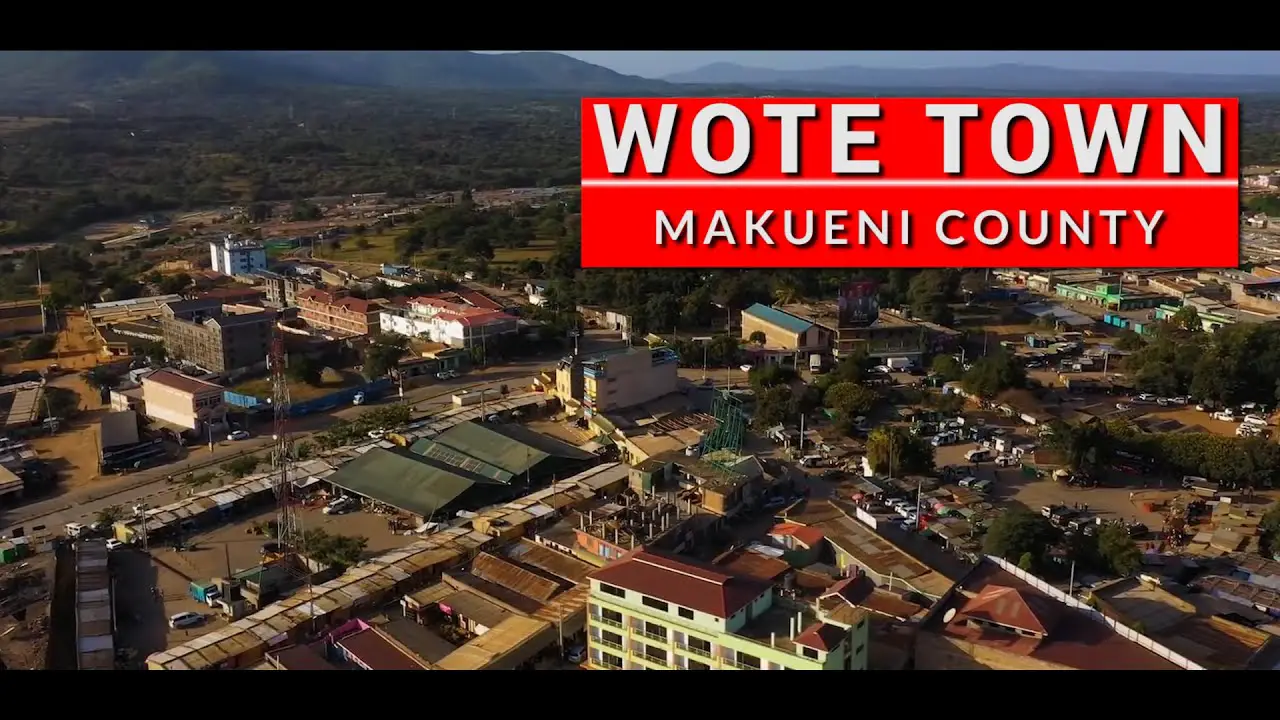
Demographics
Population
Wote Town has witnessed a steady increase in its population over the years. As of the latest census, the town is home to approximately 65,000 residents. The population growth can be attributed to various factors, including migration from rural areas and the town’s economic opportunities. The diverse population of Wote adds to its cultural vibrancy and creates a warm and inclusive community.
Ethnicity
Wote Town is a melting pot of different ethnicities that coexist harmoniously. The majority of the population consists of the Kamba people, who are the indigenous inhabitants of the region. However, there are also significant populations of other ethnic communities, such as the Luo, Kikuyu, and Maasai, among others. This ethnic diversity enriches the town’s cultural fabric and fosters cultural exchange and understanding.
Languages
The primary language spoken in Wote Town is Kamba, which is the native language of the majority of the population. However, due to the town’s diverse makeup, Swahili and English are also widely spoken. Swahili, as the national language of Kenya, serves as a common communication medium, while English is the language of instruction in schools and the preferred language for official transactions.
Economy
Main Industries
Wote Town’s economy thrives on various industries that contribute to its growth and prosperity. Agriculture is one of the main economic pillars, with the town’s fertile land supporting the cultivation of crops such as maize, beans, fruits, and vegetables. Livestock farming, including dairy and poultry, also plays a significant role in the local economy. Additionally, trade, manufacturing, and construction sectors contribute to the town’s economic activities.
Employment
The diverse range of industries in Wote Town provides employment opportunities for its residents. Many individuals are engaged in agricultural activities, either as farmers or laborers. The town’s commercial sector, including small businesses and retail stores, also offers job opportunities. Government institutions, educational facilities, and healthcare services are major employers in Wote as well. Moreover, some residents commute to nearby cities for employment opportunities.
Agriculture
Agriculture is a vital component of Wote Town’s economy. The town’s favorable climatic conditions and fertile soil make it suitable for various agricultural practices. Farmers in Wote engage in both subsistence and commercial farming. Some of the commonly cultivated crops include maize, beans, tomatoes, onions, and various fruits. The livestock sector, particularly dairy farming and poultry, also contributes significantly to the agricultural economy of Wote Town.
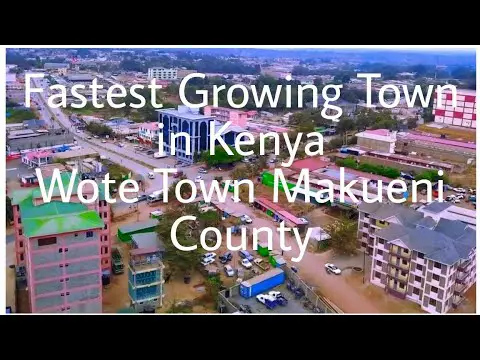
Transportation
Roads
Wote Town is well-connected through a network of roads, facilitating ease of travel within the town and to other destinations. The A3 Highway, part of Kenya’s national road network, passes through Wote, linking it to major cities such as Nairobi and Mombasa. The town’s internal road infrastructure is well-developed, with paved roads connecting different parts of Wote. This allows for efficient transportation of people and goods within the town.
Public Transportation
Public transportation plays a crucial role in Wote Town’s mobility. Matatus, minibus-like vehicles, are the most common mode of public transportation within the town and the surrounding areas. They provide affordable and convenient travel options for residents and connect Wote to nearby towns and villages. In addition to matatus, motorcycles, locally known as boda bodas, are another popular means of transportation, particularly for shorter distances.
Airports
Wote Town does not have its own airport; however, there are several airports in close proximity. The nearest airport is the Jomo Kenyatta International Airport located in Nairobi, approximately 134 kilometers away. This international airport serves as the main gateway to Kenya and connects Wote to various domestic and international destinations. The presence of airports in nearby cities facilitates air travel for residents of Wote Town.
Education
Schools
Education is highly valued in Wote Town, and the town is equipped with a range of educational institutions. There are numerous primary and secondary schools that provide quality education to children in the town and its surrounding areas. These schools are both public and private, offering a variety of curricula to cater to different preferences and needs. The presence of schools ensures that every child in Wote has access to education.
Higher Education Institutions
Wote Town is also home to higher education institutions that offer tertiary education opportunities. The town hosts technical colleges and vocational training centers that equip students with skills and qualifications for various industries. Additionally, universities and colleges in nearby cities provide higher education options for residents of Wote. This enables individuals to pursue further studies and enhance their knowledge and career prospects.
Education System
The education system in Wote Town follows the structure implemented nationwide in Kenya. The education system consists of primary education, which spans for eight years, followed by four years of secondary education. The primary and secondary education aims to provide a strong foundation in academic subjects and prepare students for further studies or career choices. Higher education institutions offer diploma, degree, and vocational courses to cater to diverse interests and career paths.
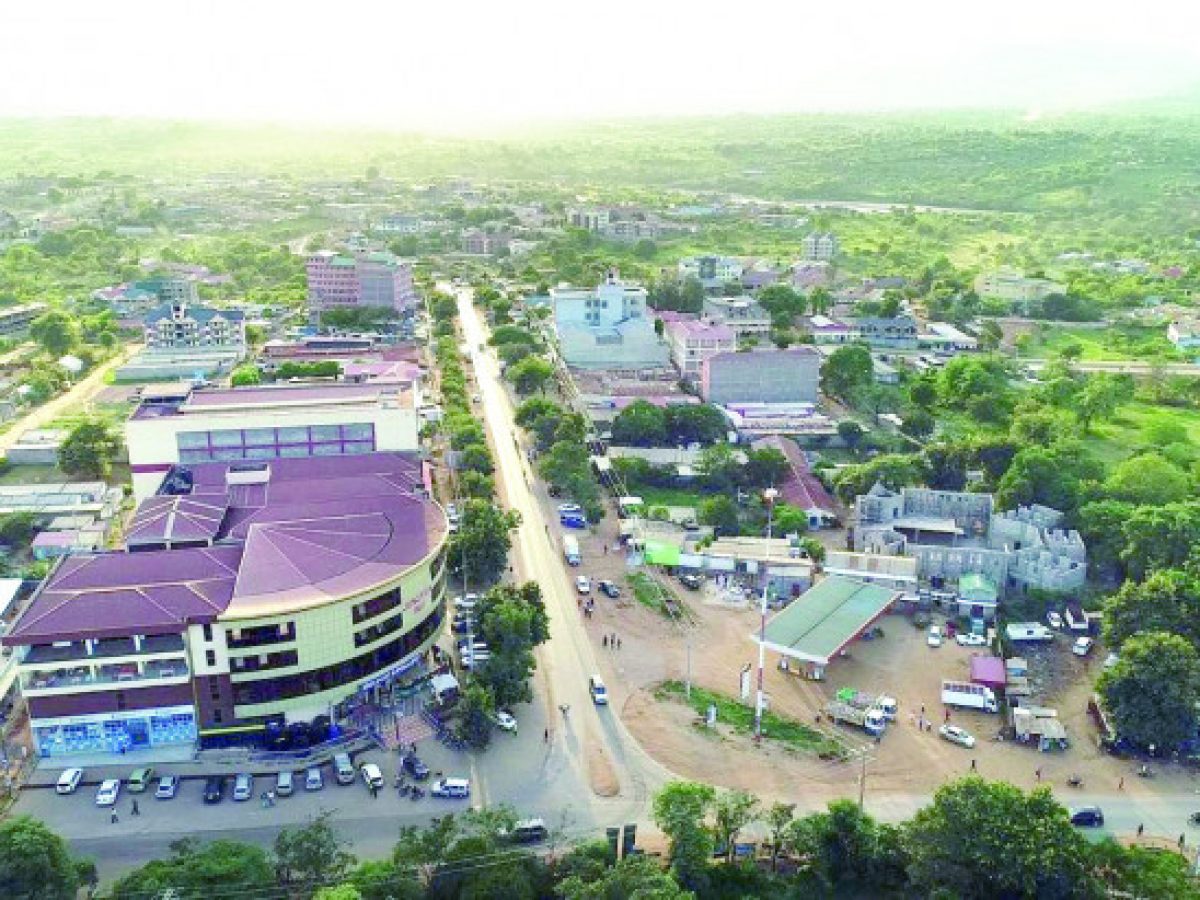
Healthcare
Hospitals
Wote Town is equipped with hospitals and medical facilities that cater to the healthcare needs of its residents. The hospitals in Wote provide a wide range of medical services, including general healthcare, emergency care, and specialized treatments. These medical institutions are staffed with trained doctors, nurses, and other healthcare professionals who ensure that the residents of Wote receive quality medical care. The presence of hospitals contributes to the overall well-being of the community.
Medical Facilities
In addition to hospitals, Wote Town hosts various medical facilities that provide specialized services and support healthcare delivery in the region. Diagnostic centers equipped with modern medical equipment aid in the accurate diagnosis of diseases. Pharmacies and dispensaries are readily available, ensuring easy access to medications. The town also has rehabilitation centers and clinics that offer services such as physiotherapy and counseling to support the overall health of its residents.
Health Services
Wote Town offers a wide range of health services to its residents. General medical check-ups, immunizations, and family planning services are readily available at healthcare facilities. Maternal health services, including antenatal care and deliveries, are provided to support expectant mothers. Additionally, clinics and hospitals offer specialized services such as surgical procedures, dental care, and mental health support. The availability of comprehensive health services contributes to the overall well-being of the town’s population.
Tourism
Attractions
Wote Town boasts several attractions that appeal to tourists and visitors. The Machakos Hills surrounding the town offer scenic views and hiking trails for nature enthusiasts. The Athi River provides opportunities for water sports and leisurely picnics by its banks. The Wote Town Market is a vibrant destination where tourists can experience the bustling local culture and shop for traditional artisanal products. The town’s charm lies in its natural beauty and the warm hospitality of its residents.
Hotels and Accommodation
Wote Town provides various accommodation options to cater to the needs of tourists and visitors. There are hotels and guesthouses that offer comfortable and affordable stays. These establishments provide amenities and services to ensure a pleasant experience for guests. Additionally, there are also lodges and campsites for those seeking a closer connection with nature. The availability of diverse accommodation options makes Wote Town an attractive destination for both domestic and international tourists.
Tourism Activities
Tourism activities in Wote Town encompass a range of experiences. Nature lovers can embark on hiking and nature trails, exploring the picturesque landscapes and observing the diverse flora and fauna. The Athi River offers opportunities for water-based activities such as kayaking and fishing. Cultural tours allow tourists to immerse themselves in the local traditions and interact with communities. Additionally, visitors can explore local handicrafts, sample traditional cuisine, and participate in festivals and events.
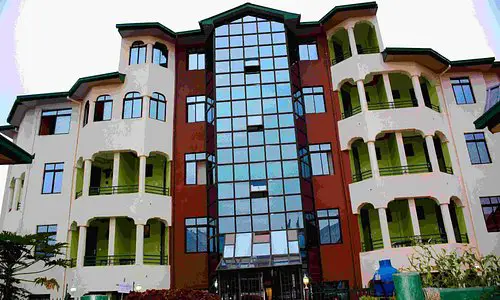
Culture
Traditions and Customs
Wote Town has a rich cultural heritage, evident in its traditions and customs. The Kamba people, the indigenous community of the region, have preserved their cultural practices, such as music, dance, and storytelling. The Kamba craftsmen are known for their intricate wood carvings and woven baskets, reflecting their artistic skills. Respect for elders and communal harmony are valued in the town, fostering a strong sense of community and cultural identity.
Festivals
Festivals play an important role in Wote Town’s cultural calendar. The Kambas’ traditional festival, known as Utamaduni, is celebrated with music, dance, and colorful attire, showcasing the community’s cultural heritage. The town also hosts the Machakos Festival, a vibrant celebration of various ethnic communities in the region, featuring traditional performances, food fairs, and craft exhibitions. These festivals provide opportunities for locals and visitors to come together and experience the diversity of Wote’s cultural traditions.
Food and Cuisine
Wote Town offers a diverse culinary experience, where traditional flavors blend with contemporary influences. The local cuisine features dishes such as ugali (a maize-based staple), sukuma wiki (collard greens), and nyama choma (grilled meat), reflecting the Kamba culinary heritage. Visitors can indulge in street food, sampling delicacies like mandazis (deep-fried pastries) or roasted maize. The town also hosts restaurants and eateries that serve international cuisines, ensuring that there is something to suit every palate in Wote.
Sports and Recreation
Sporting Facilities
Wote Town provides sporting facilities that cater to the interests of its residents and promote a healthy and active lifestyle. The town has modern sports stadiums and arenas that host various sporting events, including football, athletics, and volleyball. These facilities serve as platforms for sporting competitions and training for local teams and athletes. Additionally, there are parks and recreational areas where people can engage in outdoor activities such as jogging, cycling, and picnicking.
Recreational Activities
Recreational activities in Wote Town encompass a range of options for individuals and families. The scenic landscapes surrounding the town offer opportunities for hiking, nature walks, and birdwatching. The Athi River provides a platform for water-based activities such as boating and fishing. Cultural performances and art exhibitions are organized to entertain and engage the community. Additionally, the town’s recreational centers provide facilities for indoor games, fitness activities, and social gatherings.
Local Teams
Sports hold a special place in the hearts of Wote Town’s residents, and the town takes pride in its local teams. Football is particularly popular, with the Wote Town Football Club being a focal point for sports enthusiasts. The town also has teams and players competing in other sports such as volleyball, athletics, and basketball. The support and enthusiasm for local teams create a sense of community spirit and foster a love for sports in Wote Town.
In conclusion, Wote Town, situated in the serene landscapes of Kenya’s Makueni County, offers a unique blend of natural beauty, cultural heritage, and modern amenities. The town’s rich history, diverse demographics, and flourishing economy contribute to its vibrant atmosphere. With a range of educational institutions, healthcare services, and recreational activities, Wote Town ensures a high quality of life for its residents. Moreover, the town’s tourism potential, highlighted by its attractions, accommodation options, and cultural experiences, makes it an appealing destination for travelers. Wote Town truly encapsulates the warm and friendly spirit of Kenya, inviting visitors to explore and discover its hidden treasures.

